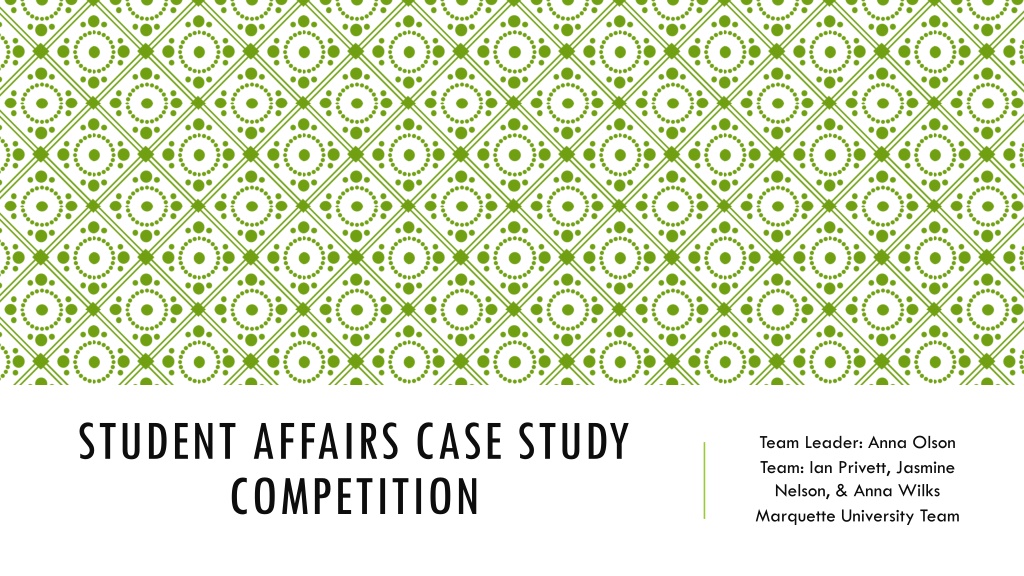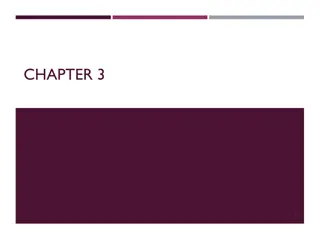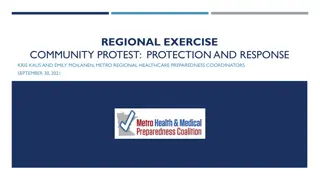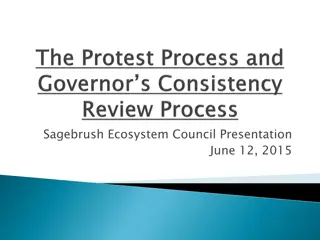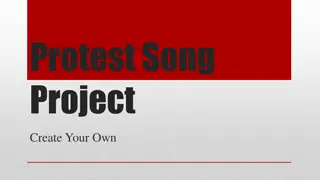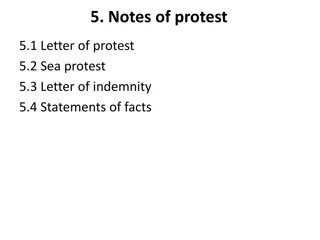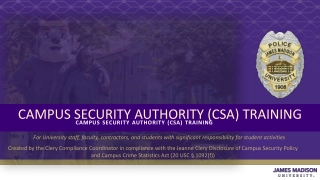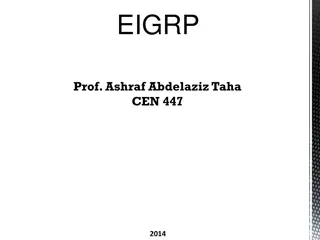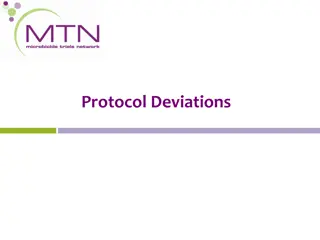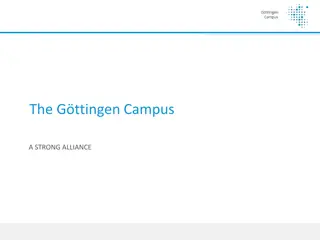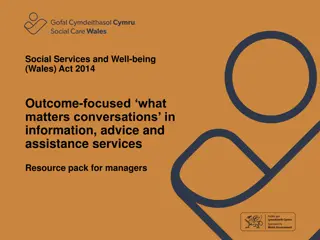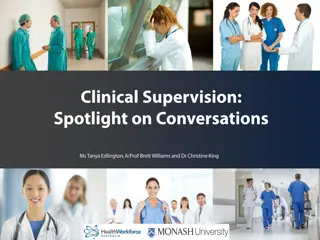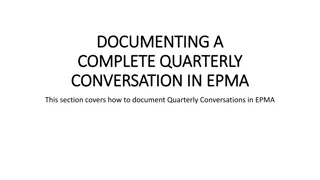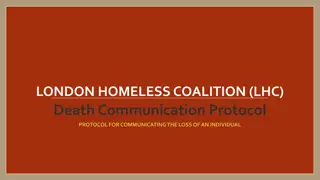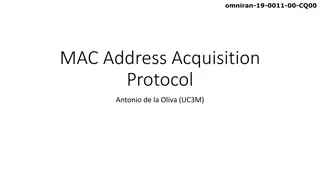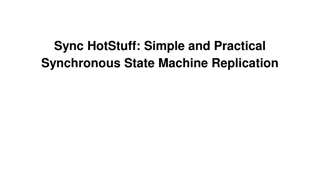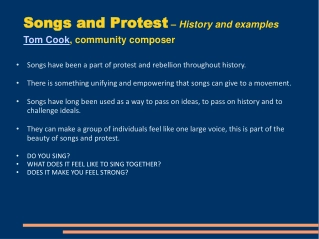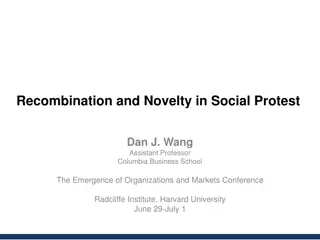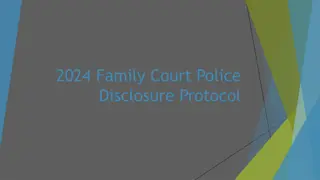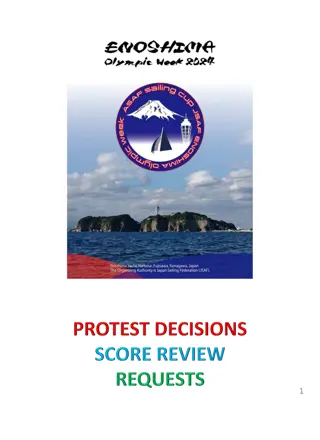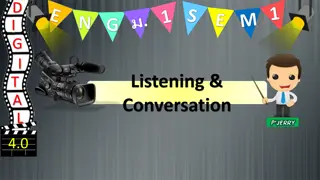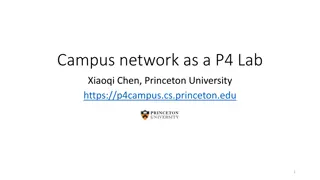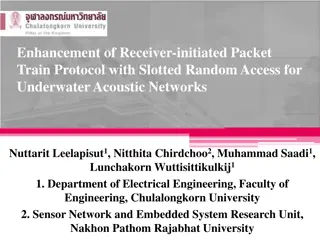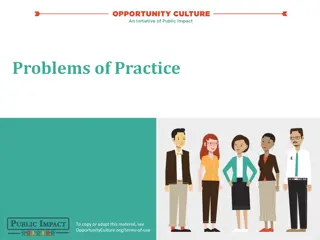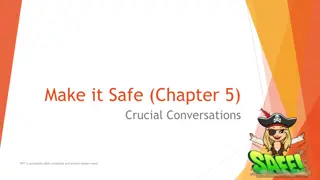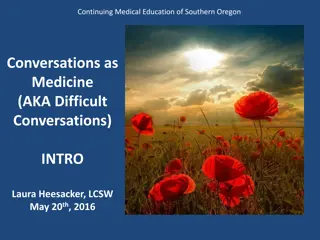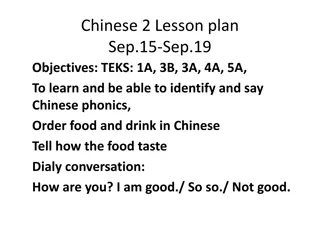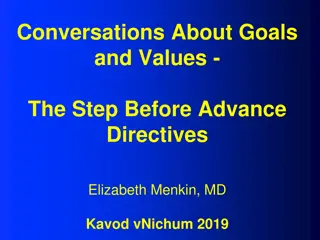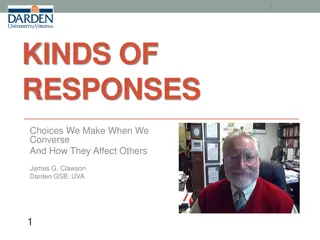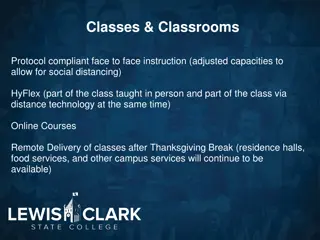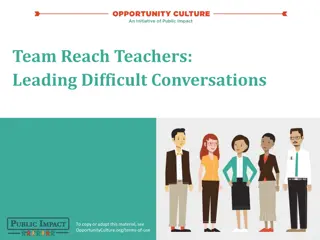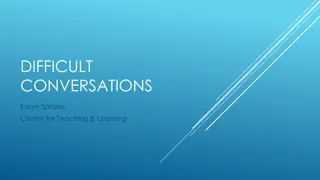Enhancing Campus Culture with Protest Protocol and Engaging Conversations
Addressing student concerns about voice, inclusivity, and social justice on campus, a comprehensive four-part plan has been proposed to foster open communication, safety, and empowerment. Current protocols for inviting speakers and handling protests are outlined, emphasizing freedom of expression within university values. The focus is on promoting positive norms through protest guidelines aligned with the institution's mission.
Download Presentation

Please find below an Image/Link to download the presentation.
The content on the website is provided AS IS for your information and personal use only. It may not be sold, licensed, or shared on other websites without obtaining consent from the author. Download presentation by click this link. If you encounter any issues during the download, it is possible that the publisher has removed the file from their server.
E N D
Presentation Transcript
STUDENT AFFAIRS CASE STUDY COMPETITION Team Leader: Anna Olson Team: Ian Privett, Jasmine Nelson, & Anna Wilks Marquette University Team
CREATING POSITIVE NORMS ON OUR CAMPUS Our students have voiced concerns about: Their voices not being heard, students often fill silenced. The conversations that they wish were happening on campus around race, equality, and social justice are not happening. Some students are not being supportive or understanding of other students differences. We have created a four part plan (protest protocol, security, engaging students, and having discussions) to change the culture on our campus surrounding controversial speakers, social issues, and other important views. Goals: To allow more open and honest communication among students. To give students the tools and the platform to have these conversations. To maintain and establish more safety on our campus in times of social crisis. To engage and empower on students, student leaders, and our faculty and staff.
WHAT IS CURRENTLY IN PLACE If student organizations desire to bring an outside speaker on campus, they must provide a written statement providing a description of the speaker, cost associated, and the potential learning opportunity this speaker will provide. This request must be approved by the Director of Student Organizations and Clubs. Outside speakers can be invited to the campus to address the organization s own members and other interested student and staff. The audience must be given the opportunity to question a speaker during or at the conclusion of a speech.
WHAT IS CURRENTLY IN PLACE The college supports the invitation of political figures onto campus for speeches, educational purposes, and social interactions. However, political figures cannot campaign for political elections on our campus. Currently, we do not have any rules as it pertains to student protest. Students are encouraged to voice their opinions but student protest have not been common on our campus until recently.
PURPOSES FOR PROTEST PROTOCOL Protest guidelines set by the university shows value for freedom of expression and safety. Guidelines should be readily available at all times and crystal clear. The institution may wish to send out protest protocol via email to all students prior to an event to remind everyone of expected behaviors. Align the protesting guidelines with the institution's missions and values to further resonate positive behavior with the campus community. Indicate that the fundamental goal of having protest protocol is to promote proper expression of beliefs, active learning, and overall safety. Assess and review results to incorporate better policies in future protocol.
PROTEST PROTOCOL GUIDELINES All participants in on-campus protests need to abide by the university's conduct. Protestors cannot restrict the movement of people, nor block hallways, doors, or exits. Protests should be demonstrated in public spaces that are reserved ahead of time. Noise should be reasonable and not interfere with classes or meetings. Airhorns, amplifying equipment, and other loud-noise generators are prohibited unless told otherwise. All trash and leftover materials should be picked up after the protest. Failure to comply with protest protocol can result in arrest or conduct action.
PROTEST SECURITY Campus police will work in a variety of roles including: Acting as a resource or consultant to help the speaker from a safety standpoint. Having a police representative as a part of the planning committee to ensure collaboration. Working to protect the speaker, starting with transport to the event and ending with transport from the event. Unmarked police car if necessary. Determining entrance and exit, as well as additional routes for exiting if needed. Police need to keep everyone s safety in mind, regardless of personal biases . Training campus police on protest policies and procedures. Refresh training catered to the event and speaker. Review facilitation of mob-mentality and crisis management. Outreach to the city police if necessary for reinforcements. Police need to be highly visible at event; should wear a distinguishable uniforms. Working with the speaker s personal security (should they have it) to ensure collaboration.
STUDENTS MUST USE THEIR VOICES TO EMPOWER THEMSELVES AND OTHERS The students in student organizations are on the front line of student body interaction. As a university, we want to ensure that our student leaders are able to have informed, educated, and meaningful conversations with other students. These type of conversations foster inclusive community environments, valuable peer-to-peer interactions, and empowerment of the self and others. Our institution is in need of cultural humility conversations to further promote a genuine understanding of everyone's identity.
CULTURAL HUMILITY CONVERSATIONS AND HOW WE PLAN TO USE THEM All student organizations executive board members (including organizations created prior) must complete a two-part educational series in order to become an official university- sponsored organization. This educational course must be completed once for each semester the group is active. This course should be taught by qualified student affairs professionals in combination with faculty, staff, and outside presenters We must focus on educating student leaders about a wide range of current controversial topics impacting higher education. Topics could include: race equality, gender equality and the women s movement, sexual assault, among other topics. While simply having a discussion is beneficial, the main goal is to teach students how to facilitate these conversations on their own.
THE INDIVIDUAL AND THE COMMUNITY Not only will this course be valuable to student leaders but it is also will help foster a better constructed environment, ultimately creating a cohesive campus culture. Culture is the confluence of institutional history, campus traditions and the values and assumptions that shape the character of a college or university. As we examine the idea that there are four true levels to our campus culture, we begin to ask ourselves what are the artifacts, perspectives, values and assumptions of our university. Overall, our primary intention is to create a valued culture on our campus through the respectful exchange and understanding of perspectives and ideas.
POST-EVENT DISCUSSION Post-event discussion is a built-in discussion option that enables anyone on campus to request a discussion of sensitive topics after an event takes place. This discussion allows for individuals on campus to work through sensitive topics and provides a productive outlet for dialogue. Overseeing the post-event discussion will fall on the responsibility of the Vice President of Student Affairs (VPSA).
REQUESTING A DISCUSSION Students need to request a discussion no later than 5 business days in which the event was held. This request should be submitted to the VPSA. The topic of the discussion should be related to the event or speaker that was on campus. Email correspondence from the VPSA should occur within 3 business days after receiving a request for discussion to notify campus departments if they are needed in the dialogue. For example: The VPSA would reach out to Health Services for help in presenting on mental health. Once planned, all students, faculty, and staff on campus will be sent an invite to the discussion, which should need sent at least one day in advance.
DISCUSSION FORMAT Ground rules should be established and explained at the beginning of every discussion. These include actively listening, portraying mature behavior, criticize people instead of ideas, don't make assumptions, a commitment to learning, letting everyone speak if they want to, and so forth. Discussion guidelines would be utilized by VPSA to facilitate a genuine yet safe conversation. Should have a focus of wanting to share and understand each other's thoughts in a secure manner. The format would be similar to a town hall meeting and it would also include the opportunity for smaller group discussion.
DISCUSSION IMPORTANCE By using the request system and following through with the discussion, it shows that we listen to the community and want to have a safe and inclusive place for learning. Provides an opportunity for the community to come together and learn about different ideas and perspectives in a respectful and dependable environment. Benefits students learning to debate and work through emotions and logic to truly understand where fundamental differences lie in arguments. Students, faculty, and staff have the opportunity to learn how to dismantle arguments by exposing assumptions and flaws, rather than attacking one another.
IMPROVING THE INSTITUTION Fostering an understanding and accepting community is a primary goal for any institution. By utilizing proper protest protocol, riots and disruptive behaviors can be limited and allow the focus to remain on the event itself. Campus security and police are essential for monitoring the environment, which allows students, faculty, and anyone else attending the event to feel safe. Organizing peer-to-peer interactions will facilitate further connections between students, hopefully creating a comfortable campus climate. Making post-event discussions available on a student's request shows the institution is actively listening to student concerns and is acting upon them. All of these guidelines brought together are sure to impose a practical yet beneficial solutions for future events in which students surmise a more holistic understanding of others.
